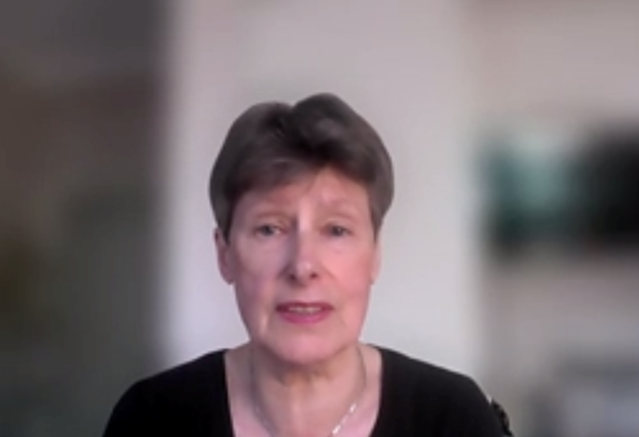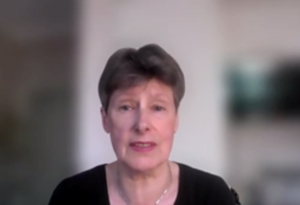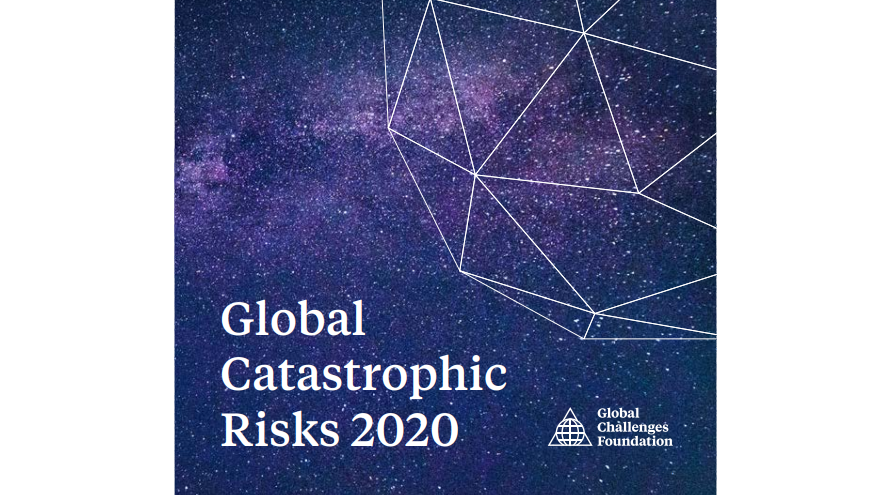
“Many are worried about the danger of nuclear or chemical explorations, while we do not really consider biological weapons,” noted VCDNP Senior Fellow Angela Kane during a webinar on “Reassessing biosecurity in light of COVID-19.” The webinar, held on May 12, 2021, was organized by NGO Committee on Peace, Vienna.

Ms. Kane, reminding the audience about the COVID-19 timeline, highlighted that the disease spread remarkably quickly. “After recording outbreak of the pandemic on 5 January 2020, by 4 April, one million cases were recorded globally. Between June and September, the number of deaths doubled ,from 500,000 to one million.”
Now, more than a year later, only 2.9% of the population is fully vaccinated, while nearly 7% of the population has received a first dose. The situation in some regions, such as in India, highlights the grave impact of spiraling infections.
Ms. Kane noted that, although COVID-19 was not a deliberate biological attack, it has a negative impact not only on health but also on the deepening of economic division. Furthermore, other risks include the relative ease of spreading disinformation regarding a biological threat, as well new means of delivering biological weapons, for example with drones. The internet spreads the knowledge of how to create biological weapons, and there is no database to monitor biosafety and biosecurity. There is neither strategical management of the issue, nor attribution of responsibility, nor accountability. Kane argued that these factors could motivate non-State groups to focus on biological weapons, and “that is a very much of concern.”
In the context of international rules and organizations, Ms. Kane compared the Biological Weapons Convention with (BWC) with the Chemical Weapons Convention (CWC). According to Ms. Kane, the CWC defines a chemical weapon by its intended purpose, rather than lethality or quantity. It also allows for verification of compliance. By contrast, the BWC is much less prescriptive and that results in loopholes and ambiguities.
“To start with, there is not even a formal definition of biological weapons. States report on the measures taken voluntarily. There is no legally binding verification.” Ms. Kane also noted the Treaty on the Non-Proliferation of Nuclear Weapons (NPT) and the Stockholm Initiative focused on measures how to make the NPT sustainable and effective. However, there is no movement like the Stockholm Initiative regarding the BWC. The next BWC Review Conference will be held in 2022, and Ms. Kane’s speculation is that there will be no unity between the BWC State Parties to agree on verification measures to improve biosafety and biosecurity.
Ms. Kane also emphasized that the world is not ready for a future pandemic.
“There is a lack of planning for a future pandemic. What measures and tools do we have not to repeat the current situation again?” In this regard, Ms. Kane mentioned that the framework how to handle pandemics is being established only by governments, and there are no internationally accepted rules.
“Each country takes its own decisions, closing borders, shutting down travel; there is no strategic leadership. This lack of concerted approach has tremendous ramifications."
However, outbreaks can be prevented or stopped. Ms. Kane outlined the need to establish an international coordinating mechanism that should consist not only of governmental experts but also representatives from the pharmaceutical industry. There should be a network of scientists to exchange information. Ms. Kane also highlighted the importance of civil society and advocacy.
“We need to look at what we can do better. We should ask ‘what is my government doing to look at the issue?’.”
In conclusion, Ms. Kane noted that COVID-19 can facilitate the process of elaborating new norms and standards and strengthening the existing framework. Her worry, she noted, is that no one will think to take these steps once the pandemic is over.

